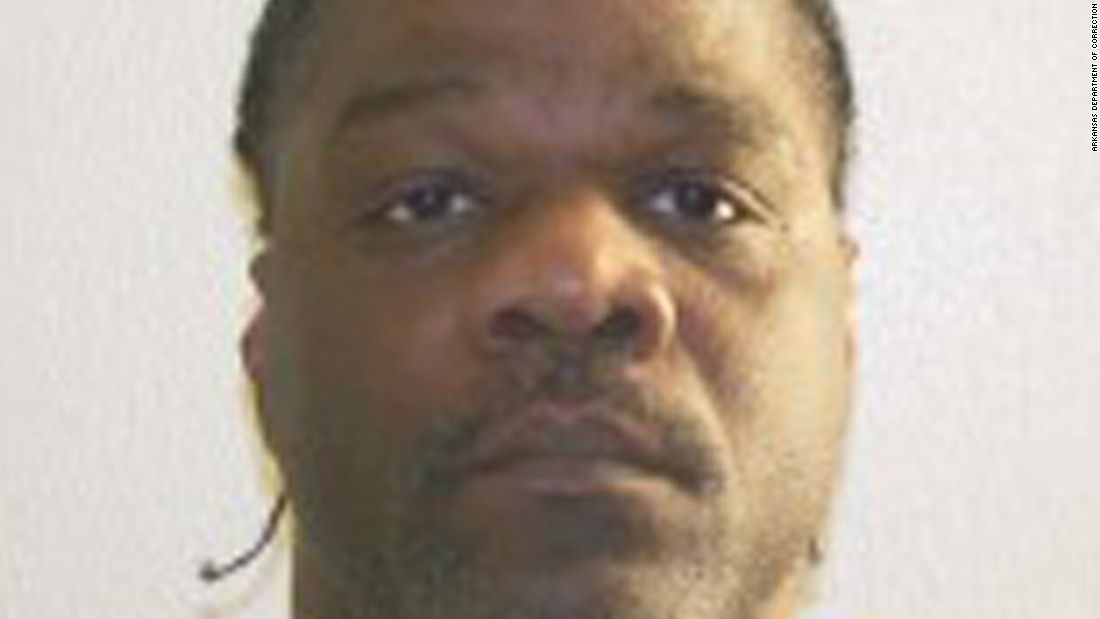New evidence suggests Ledell Lee, executed in 2017, was innocent

A few minutes every morning is all you need.
Stay up to date on the world's Headlines and Human Stories. It's fun, it's factual, it's fluff-free.
More than two years after Ledell Lee was executed in Arkansas following a murder conviction, new evidence suggests he may have been innocent. Lee had maintained during the trial and following his subsequent murder conviction that he was innocent and supporters, including the American Civil Liberties Union (ACLU), fought but ultimately failed to prevent his execution.
Lee’s case was taken up by the Innocence Project, a group seeking to exonerate the wrongly convicted.
What was Ledell Lee accused of?
On February 9, 1993, a 26-year-old woman named Debra Reese was beaten and strangled to death in her Jacksonville, Arkansas, home. Lee was one of Reese’s neighbors and was subsequently arrested and charged with her murder. The state accused Lee of killing Reese for “pecuniary gain” when it was discovered that a substantial amount of money had gone missing from Reese’s home following her death.
Lee was convicted and sentenced to death on October 16, 1995. Following his conviction, Lee continued to insist that he was innocent and appealed the case on the basis that his attorneys had provided him insufficient counsel.
Despite the efforts of Lee and groups like the ACLU, the Arkansas Supreme Court refused to reverse the original decision.
While on death row, investigators took samples of Lee’s DNA in an attempt to connect him with three rape cases and one additional homicide. Ultimately, Lee was convicted of two of the rape cases and a jury could not come to a decision on the homicide case.
After further appeal, the US Supreme Court decided not to reverse Lee’s conviction, and Lee was executed on April 20, 2017. At the time, Lee was the first inmate to be executed in Arkansas in 12 years.
What is the new evidence?
Up until his death, Lee maintained that his legal counsel failed him. Now, a lawsuit brought by Patricia Young, Lee’s sister, has brought to light evidence that Lee was possibly correct.
In an affidavit, the attorney that represented Lee admitted to substance abuse and struggling with addiction while working on Lee’s appeals.
The lawsuit also points to the possibility that the DNA evidence was faulty. The lawyers who prepared the filing have argued that forensic experts “misinterpreted the evidence” in order to support the state’s case against Lee. Part of the evidence used to convict Lee was a hair analysis technique that has since been discredited.
The lawyers are seeking to gain access to DNA and fingerprint evidence taken from the crime scene. It was already known that none of the five sets of fingerprints found in Reese’s home matched Lee.
The lawsuit is supported by the ACLU and the Innocence Project.
[article_ad]
What is the Innocence Project?
The Innocence Project is a nonprofit organization, founded in 1992, focused on exonerating wrongly convicted individuals. They do this in large part with the help of DNA evidence that can be used to prove a convict’s innocence.
According to the Innocence Project’s statistics, since the first exoneration based on DNA evidence occurred in 1989, there have been 367 convictions overturned across 37 states.
Nearly half of those 367 cases involved the “misapplication of forensic science” while another quarter of cases involved false confessions. Exoneration can, however, be a long process. On average, wrongfully convicted individuals still spend 14 years behind bars.
The Innocence Project has worked on over half of the cases that have ultimately led to a convict’s being exonerated.
The US prison population
The Innocence Project also supports criminal justice reform that seeks to fix systemic problems with the US justice system.
Research shows that the United States incarcerates more of its citizens than any other country in the world. In 2018, that amounted to nearly 2.2 million people. If the US prison population were a city, it would be the fifth largest city in the country.
African Americans, such as Ledell Lee, continue to make up a disproportionate percentage of the prison population. In 2017, African Americans made up 12% of the US population but 33% of the prison population.
The ACLU has reported that one out of every three black boys born in the US will end up behind bars at some point in their lifetime. In contrast, only one in 17 white boys born in the US will end up serving time.
The US Department of Justice, however, also published a report in April of 2019 showing that while there is a gap between the black and white prison population in US federal and state prisons, the gap is narrowing.
The death penalty in the United States
Currently, half of the states in the US permit the death penalty, also known as capital punishment. Of the 25 that do not, 21 have banned it outright while four have a moratorium put on the practice by their current governor.
The most recent state to abolish the death penalty is New Hampshire, which did so in May 2019.
The Supreme Court has previously ruled that the death penalty does not violate the US Constitution’s prohibition against cruel and unusual punishment.

Comments ()